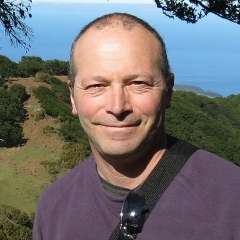The first revival of Axel Weidauer’s 2012 production of Stravinsky’s The Rake’s Progress for Oper Frankfurt brings with it a largely new cast of role debutants drawn from the company’s own ensemble. With American singers in the two lead parts, projection of Auden and Kallman’s English text was in safe hands, though Theo Lebow’s Tom Rakewell wasn’t immune from the occasional stateside vowel sound. His was a forthright, highly physical assumption of the role, though his tenor was arguably at its best in the more lyrical music of the later scenes than in the carefree knockabout of his character’s early appearances.
Elizabeth Reiter’s Anne Trulove brought some of the most accomplished soprano singing I’ve heard in a long while. Her tone is clear and surprisingly mezzoish, her projection of the words is full of meaning and her musical phrasing well judged. Her extended aria at the end of Act 1, “No word from Tom”, was a masterpiece of pacing and characterisation, enhanced by her expressive delivery, and it invigorated a dramatic pace that had taken a while to be pick up speed in the performance as a whole up to that point.
Korean bass Kihwan Sim as Nick Shadow produced a nice rich sound, though his often lamentable English made one wonder if he would get away with the same in German. No such problem with Tanja Ariane Baumgartner’s vividly drawn Baba the Turk, though – every word of hers told, even in the patter of the comic scene where she nags her new husband to distraction, and she steals every scene in which she appears. Alfred Reiter (no relation) was a little stiff as Anne’s father, though I suppose that goes with the role; Peter Marsh made a mark as the auctioneer, Sellem; and Barnaby Rea’s brief scene as Keeper of the Madhouse was luxury casting. Only Barbara Zechmeister’s Mother Goose, the brothel keeper, failed to make much of an impression.
Making his house debut, Italian 20th-century music specialist Tito Ceccherini conducted a tight, vigorous account of the score, though there were a few balance problems between stage and the raised pit when soloists had to sing across the sound of the full orchestra. But the performance succeeded in conveying Stravinsky’s aim of a re-invented Mozartian sound. The chorus made the most of its scenes and In Sun Suh’s accomplished harpsichord playing accompanying Tom’s mad scene deserves special praise.
Weidauer’s production wears well, and has been tightly revived by Alan Barnes. Moritz Nitsche and Berit Mohr’s designs make play across the centuries, with sets suggesting both glitziness and darkness and costuming ranging from powdered wigs to Art Deco. If the early scenes seem a bit tame, things pick up in Act 2 with the arrival of Baba the Turk, here not a bearded lady in a sedan but a woman lacking the whole of her lower half and hiding in a shipping container – her ‘reveal’ was more premature than surely intended on this occasion, but there are some neat stage tricks with Tom’s later, exasperated dispatch of her and ultimately when she is literally drawn up to her full height. The final confrontation of Tom and Shadow is compellingly directed, the Rake’s descent into madness is touching and suitably bleak, and the Don Giovanni-apeing moralising sextet a raucously summatory affair.


